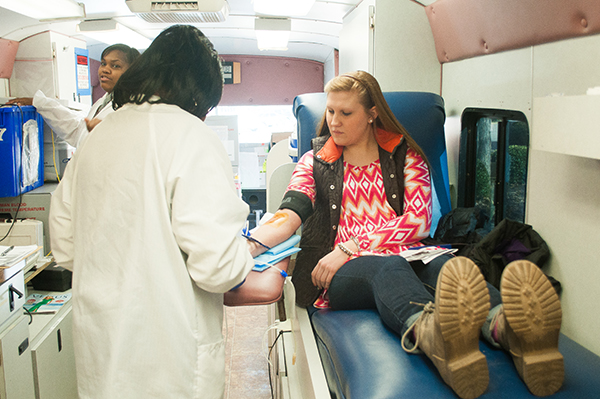Reporting was contributed by Jared Dryden.
The Arkansas Legislature is facing conflict and controversy regarding funding of Arkansas’ Medicaid private option plan. According to the New York Times, the plan allows federal funds granted to the state through the Affordable Care Act’s Medicaid expansion to be used to buy private health care insurance for Arkansas residents living under or close to the poverty level.
The expansion passed last year 77-23 in the House and 28-7 in the Senate, reaching the 75 percent requirement for allocation of funds under the Arkansas Constitution. However, extending the plan past this year requires a new vote, and with such a high requirement, every legislator who changes his or her stance on the issue represents a serious threat to the plan’s funding, according to Arkansas Gov. Mike Beebe, a Democrat.
“It’s been pointed out we have a Republican legislature, but that is the least of our concerns,” Beebe said in a question-and-answer session with Kaiser Health News. “It is the 75 percent (approval) requirement under our constitution for appropriating any money, which creates a huge obstacle. Getting 75 percent approval under any situation is difficult, and to get 75 percent of votes in either house is a monumental task. That is more significant and consequently more of a threat going forward than partisan Republican–Democrat philosophy issues because it was passed with a majority of Democrats and majority of Republicans.”
Since the expansion passed last year, over 83,000 Arkansans have signed up for the private option, 53 percent of whom are under 40 years old, according to the Arkansas Department of Human Services. If the plan is not extended, it could leave many of these residents without access to health insurance as soon as July 1, according to the New York Times.
Governor Beebe said one strength of the private option is that it will help defer the cost of the Medicaid expansion for Arkansas. Under Medicaid expansion, the federal government funds Medicaid 100 percent until 2017, when it will gradually decrease its funding to 90 percent by 2020, according to the New York Times. Starting in 2017, states will have to cover the remainder of the expenses. Arkansas has a premium tax on all health insurance policies, which will allow it to bear the increased cost without a further tax increase, according to Beebe.
Senior Michael Wallace, a public administration major and Arkansas resident, said funding the private option is the best option for Arkansas at this point.
“Whether we like it or not, the Affordable Care Act is here to stay,” Wallace said. “By going with the private option, Arkansas purchases private insurance for those who qualify, deferring them from Medicaid, a flawed entitlement program.”
Tyler Tucker, a sophomore business management and finance student, said the private option is not enough to counteract Medicaid’s flaws.
“Medicaid is a broken entitled program and desperately needs to be restructured,” Tucker said. “Until that restructuring occurs, the program should not be expanded in any form. I like the private option over government-run programs because I believe that the private sector is more efficient and delivers higher quality service. Even though I favor the private option, I do not believe that it is right for Arkansas at this time because I believe that over time the federal money will stop, and Arkansas will be stuck with the bill.”
While most states have struggled with the decision to expand Medicaid or not, Arkansas has approached the issue with ingenuity, pioneering the private option as an alternative, according to Matt Salo, executive director of the National Association of Medicaid Directors.
The District of Columbia and 25 states currently have plans to expand Medicaid in 2014, according to The Advisory Board Company. Iowa, Pennsylvania, Utah and Ohio are considering approaches similar to Arkansas’, according to the Associated Press.
